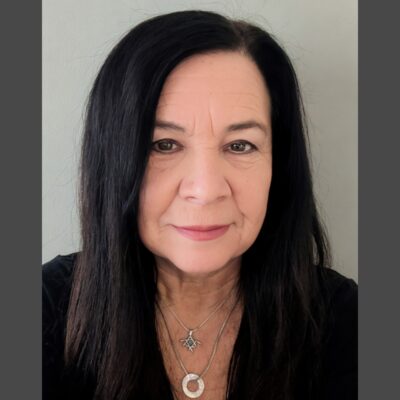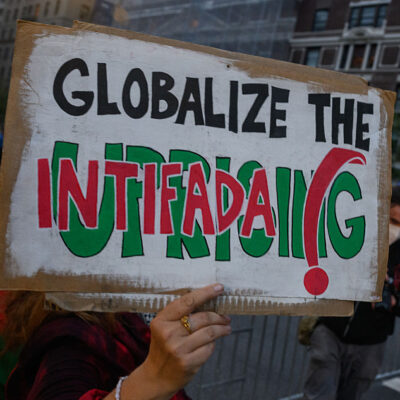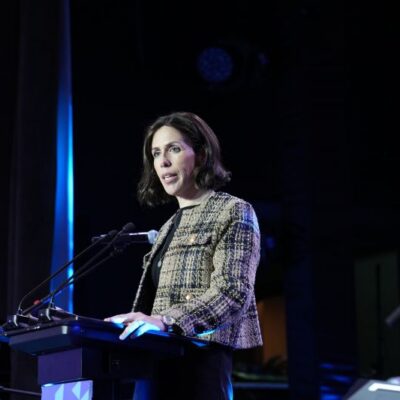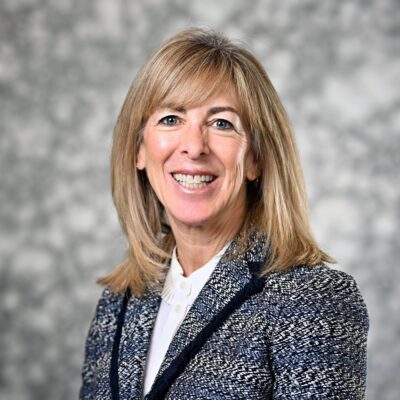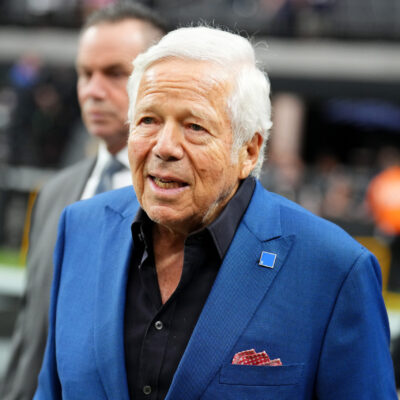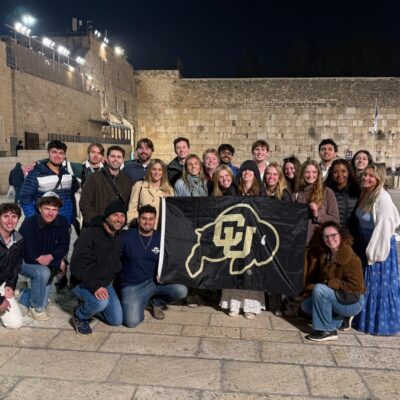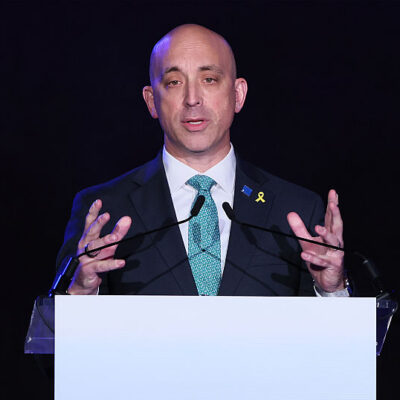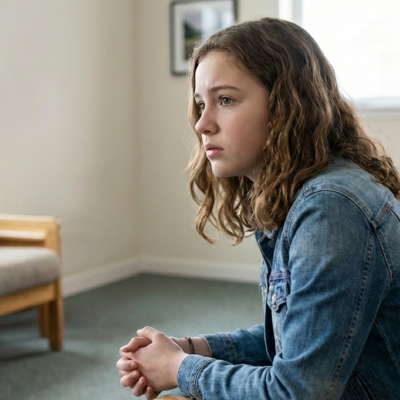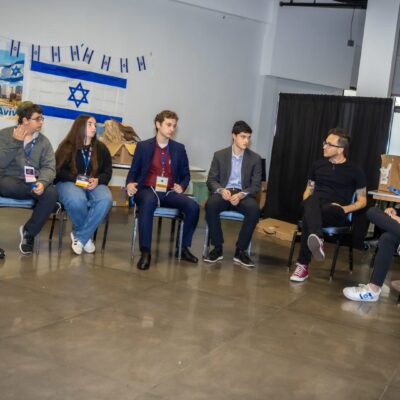collaborative effort
Three Israeli NGOs in Africa weren’t collaborating. Now they’re working together
The collaborations between IsraAID, Save a Child's Heart and Innovation: Africa were spurred by the Kirsh Foundation, which supports all three groups

Courtesy
Doctors performing surgery on a patient through Save a Child's Heart
The lives of a group of children from South Sudan hung in the balance, the promise of heart surgery resting more than 1,700 miles away in Tel Aviv. The Israeli nonprofit Save a Child’s Heart, which offers life-saving procedures in Israel to children from all over the world, had recently identified several in the impoverished African country who were excellent candidates for the surgery. “We saw them and we knew we could help them, but we didn’t have the logistical support on the ground,” said Simon Fisher, SACH’s executive director.
Now, such support in Africa is fast becoming a reality. Three Israeli humanitarian nonprofits working on the continent — IsraAID, Innovation: Africa and Save a Child’s Heart — have begun collaborating on projects, with a push from the Kirsh Foundation, which donates tens of millions of dollars to the three groups.
“This collaboration is very unique and does not happen very often between nonprofit organizations in general and the humanitarian space in particular,” IsraAID CEO Yotam Polizer told eJewishPhilanthropy in a phone interview from Dominica, a small country in the Caribbean that was recently devastated by a hurricane. IsraAID is working there to build a long-term recovery and resistance project there as well as a project to deal with climate change.
IsraAID, founded in 2001, has worked in more than 60 countries after emergencies, such as hurricanes, as well as long-term projects. Polizer says the group is often able to respond to emergencies within 72 hours, bringing models from Israel for public health, education and psychological support. The organization works on three levels: emergency response, recovery and preparedness, and refugees and forced migration. It also works with survivors of rape and gender-based violence. The organization is currently working in Kenya, Uganda, South Sudan, Mozambique and Ethiopia, having recently finished a project in Eswatini (formerly known as Swaziland) dealing with survivors of Ebola as well as a large-scale vaccination campaign.
Polizer, who last month was announced as the recipient of the Charles Bronfman Prize, said that each of the three organizations involved has a different expertise and that collaboration can benefit all of them, such as the case of the Sudanese children who required heart surgery.
“We saw them and we knew we could help them, but we didn’t have the logistical support on the ground,” said Simon Fisher, the executive director of Save a Child’s Heart. “It’s life and death for these children. We hope we can use the collaboration to reach out to children who we otherwise would not even identify and be able to bring them to Israel.”
Fisher said that since Save a Child’s Heart was founded in 1995, the nonprofit has treated more than 6,500 children from 66 countries around the world. In the next few weeks, SACH hopes to receive children from Guinea-Bissau, Gabon and Eswatini, raising the total number of countries from which they’ve received children to 69.
The third large-scale organization working in Africa is Innovation: Africa, which has used Israeli solar and water technology to deliver clean water and energy to more than 4 million people across 10 African countries.
Sivan Yaari, the CEO of Innovation: Africa, said that the collaboration with IsraAID is beneficial to both organizations; while there is some overlap, each operates in different countries in Africa and can therefore share knowledge. The organization employs 130 people, mostly engineers, throughout the continent.
She said that she has hired employees from IsraAID, and IsraAID has hired her employees and that the two organizations maintain good relations. This week, the two groups are conducting a joint training with geophysicists in Uganda to learn about issues surrounding drilling wells.
Save a Child’s Heart has been working in Tanzania for years, and when Innovation: Africa wanted to open a project in Tanzania, SACH staffers were able to share knowledge of hospitals where clean water was not available and where providing it would address the most urgent needs.
The foundation encouraging this collaboration was founded by South Africans Nathan and Frances Kirsh. The Kirsh Foundation focuses on southern Africa development through microfinance loans that have helped nearly 27,000 businesses. The foundation also funded a project for internet connectivity in Eswatini. In Israel, it operates a similar microfinance program called Keren Natan.
“They are incredibly committed philanthropically to Israel and were looking for a way to bring their two passions together,” Carly Maisel, the foundation’s global CEO, told eJP. “These three organizations embody the best of what Israel can do in the humanitarian space across the African continent.”
She said that the CEOs of all three nonprofits knew each other but didn’t necessarily have a close working relationship. The Kirsh Foundation encourages collaboration among all of its grantees but especially in Africa, given the continent’s many challenges. Recently, the ongoing humanitarian crisis in Ukraine has captured the world’s attention, and IsraAID has been active there as well. But the crisis in Africa is worsening because of a severe drought and climate change.
“The Kirsh Foundation understands what it takes to build a sustainable and efficient organization,” Innovation: Africa’s Yaari said. “They understand that to be efficient you have to hire the right team and empower the local teams on the ground. In every country we work in, we hire local people and then transfer the knowledge and technology from Israel.”
She said that the foundation’s support has enabled her nonprofit to scale its efforts up significantly. In 2022, the organization brought water and electricity to 241 villages, delivering the utilities to a new village, on average, every day or two. Before that, it took 10 days or two weeks for each village to get those services.
“They understand that access to clean water makes such a difference to the community,” Yaari said.
Polizer of IsraAID agrees.
“These three organizations put a spotlight on Africa and the need there,” he said. “The partnership we received has really been a game changer.”

 Add EJP on Google
Add EJP on Google



